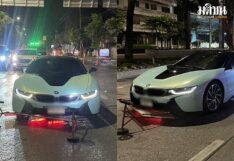In the telecommunication world, technology tends to make a major change every decade. We had 2G or GSM in the 90s, 3G or CDMA in the 00s, and 4G LTE since 2009. It has been almost ten years since 4G or 4th generation network has started commercial operation. Today, as the world awaits for the rolling out of the 5th generation, widely expected to be ready for commercial use in 2020, we should learn more about how the 5G can impact our lives and society.
What is 5G? To put it simply, 5G is a speedier mobile internet compared to the 4G. By how much? Well, the industry is placing the standard for 5G to be around 30-100 times quicker than that of 4G. Sure, it will be a lot faster to download movies in full HD. It might take only seconds to put the 3 hours of Lord of the Rings saga in you cell phone. However, the potential impact of 5G can be much more profound than the download speed. With a much faster and more stable mobile internet, 5G will allow a wide range of new applications that alter the way we live, and turn our economy upside down. In this article, we will discuss more about how 5G may affect our country and Thai economy.
Considered as one of the top destinations for medical tourism, Thailand has always been renowned for its medical services. According to Kasikorn Research Centre, the industry generated almost 50 Billion Baht (USD 1.6 Billion) of revenue for private Thai hospitals last year. However, the shortage of physicians in the rural area remains a major problem for the nation.
Last year, the Thai government and the NBTC have been working hand in hand to establish internet centers in rural areas. This may help mitigate the doctor shortage problems by enabling “tele-medicine”, but this type of services is still confined to simple diagnosis and treatment since the available data transmitted is limited to only images and sounds.
5G will change this. One of the new services that accompany 5G will be “tactile internet.” That is, future mobile internet network will not only convey images and sounds as it used to in the today’s world, but 5G will also make it possible for the internet to transmit the sense of touch between two parties.
Internets with a sense of touch…how is this possible? Imagine the Playstation, If you have ever played one before, you probably know that the console may shake when the character in the game engage in a certain action. That is the basic concept of tactile internet. In this sense, when you remotely control the robot through 5G, the robot may transmit the data when it touches an object, and expressing it through a controller. This technology will make it possible for doctors to do what will be termed “tele-surgery”. A doctor, sitting in his Bangkok office, may perform a surgery by controlling a robot via 5G across the country.
Not only will this method help alleviate the doctor shortage problem, it may help leverage Thai hospital brands to expand beyond the physical border. Take for example, one of the top Thai private hospitals which only have a single facility in the downtown Bangkok. With the help of 5G, it may not need to make a big investment in other facilities. By only spending minimally on satellite surgery centers, and have its doctors perform medical treatments and surgeries from the headquarter, private hospital can save costs while expanding its operations rapidly.
Another widely anticipated 5G application is Intelligent Transport System (ITS), which includes autonomous driving. ITS relies heavily on Internet of Things (IOT) to provide real time data via numerous censors installed on vehicles and roadsides via 5G internet connections.
ITS covers an optimal public transportation plans. From the data provided by IOT’s censors, the government can analyze them to come up with a better way to run public transport network such as buses or subway to improve route optimization, energy consumption and travel time. And, when the ITS is further developed, we can expect to see autonomous driving vehicles on the street.
In term of business plan, we can look at Masayoshi Son of Japanese telecom giant, SoftBank, as the guidance to the future of transportation. Masayoshi is a famous tech investor and the first person who dared to invest with Jack Ma to establish Alibaba twenty years ago, and who still holds the biggest stake in this biggest e-commerce company in Asia today.
Currently, Masayoshi is managing the world’s biggest venture capital fund called “Vision Fund.” He has almost $100 billion under management. In the past couple of years, his fund has accumulated stakes in the taxi services mobile apps providers such as Uber in the US, Didi in China, and Grab in Southeast Asia with a bet worth a total of at least 15 billion USD. According to his speech in Mobile World Congress 2017 in Barcelona, what he foresees is the future of mobility when all devices are connected through fast and stable internet and operated by AI where a large scale of autonomous driving fleets can be achieved.
With this combination of technology, mobile app taxi operators can fix the major problem that causes Uber to keep losing money: sharing a large chunk of revenue to the drivers. Thus as the autonomous car arrives, we can reasonably expect more and more reduction in employment for a driver job. This is supported by the Bloomberg studies which believe lower skills jobs such as drivers, waiter or cashiers are the most at risk of being replaced by automation.
Another important application of 5G is virtual reality (VR) and augmented reality (AR). Although both are similar in principle, VR and AR differ in one important way. AR still relies on the real surrounding to create virtual objects or details on top of it, but VR will create an entire artificial world for the user. The famous example of AR is the popular game, “Pokémon Go,” which places fictional characters in the real world that can be seen through our mobile phone camera.
Surely, these two technologies are expected to revolutionize gaming and media industry. Players can immerse themselves into the virtual world to experience contents like never before. However, it is not only media that will be changed by VR and AR, but also retail shopping can be disrupted as well.
UBS has conducted a survey on consumers in Southeast Asia and found that e-commerce is popular for products, for example clothes or cosmetics that do not require users’ experience at decision-making stage. However, some goods, such as luxury brand products, still need brick and mortar stores for customers to try and get the feel from the merchandise. VR and AR can solve this issue by letting the customers experience the products without the need of physical stores. In the future, we may see a virtual department store and this will further fuel the growth of e-commerce in the 5G era.
From what you can see, 5G is expected to create new applications that require faster and more stable internet like AR, VR, IOT, and tactile internet. 5G applications can be even more varied than what is presented here in this article. However, what was described in this piece may not come into fruition since most of these are investment plans for the future while there is no 5G in the real world to try these ideas out yet. But, one thing for sure is that the imminent 5G technology is not just about faster internet, it will change the way we live by opening up more possibilities for new applications that do not exist today.
by. Mr.Chod Reankittiwat, CFA Economist Office of The National Broadcasting and Telecommunications commission (NBTC)










